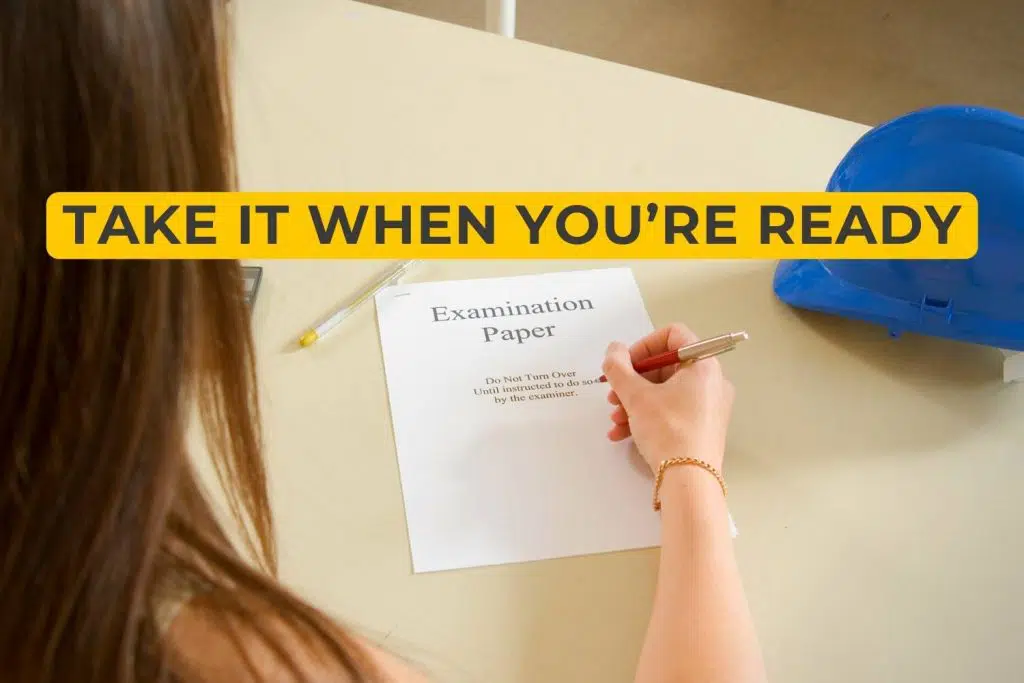Studying for the MCAT can be pretty stressful. The amount of material you need to cover can seem overwhelming, and it’s easy to get burnt out. There’s no denying it — preparing for the MCAT requires dedication, persistence, and hard work.
However, creating a study plan and sticking to it can help you manage your stress and reach attainable goals. Here are ten tips that can help you prepare for the MCAT and get the score you’re aiming for on the first try.
1. Discover Your Areas of Weakness

Your first step is to discover your areas of weakness. Which topics do you need to pay extra attention to?
Taking a diagnostic test can help you determine which topics you don’t understand well. The purpose of this first practice test is not to build stamina in preparation for the actual MCAT. That will come later. For now, you want to understand which content areas you need to review again.
Once you understand your areas of weakness, you can move on to the next step, which is creating your study plan. Your study plan shouldn’t focus exclusively on your areas of weakness. You need a comprehensive review; there will always be things you forgot or didn’t fully understand. However, you need to spend more time on your areas of weakness.
2. Create and Stick To a Schedule

Once you’ve figured out which areas you need to focus on, you can move on to creating a schedule. You need to stick to that schedule, or you’ll never reach your goals.
On the one hand, you don’t want to be too rigid. If you see that you need to spend more time on a particular subject, don’t be afraid to adapt your schedule and allocate more time to that subject while focusing less on topics you already understand fully.
On the other hand, you have to be careful you’re not just making excuses for yourself. There’s a fine line you need to walk here. Studying for the MCAT requires you to push yourself a bit, so don’t just keep telling yourself, “I’ll finish this tomorrow.” If you constantly do that, you’ll fall behind on your schedule, and you won’t be ready when test day arrives.
3. Focus on Understanding Instead of Memorizing

Take your time to understand each topic instead of just memorizing it. When you see you got an answer wrong when taking practice tests, try to understand the reasoning and logic behind the correct answer.
That doesn’t mean you can forget about memorization entirely. A big chunk of the MCAT does require you to memorize and remember answers to questions. However, whenever possible, you want to make sure you are not only memorizing the answers but understanding cause and effect.
Some questions may try to confuse you, so having a good grasp of the topic will help you get them right.
4. Use Anki and Khan Academy

Many online MCAT test prep resources are available — make use of them. Two of the most useful ones are Anki and Khan Academy.
Anki helps you with the memorization aspect. It uses spaced repetition to help you remember key concepts. Spaced repetition is a scientifically backed learning method that introduces material at spaced intervals. Anki uses flashcards for spaced repetition.
The brain just isn’t good at processing a lot of information in a short period for long-term retention. If you want the information to enter your long-term memory storage, you need to keep introducing it to your brain, but not all at once.
You can introduce more complex concepts that are harder to understand or remember more frequently while gradually spacing out older concepts that you already understand.
There are many decks on Anki that others have created that can help you prepare for the MCAT.
Another fantastic resource for MCAT test prep is Khan Academy. This one is better for the understanding aspect as opposed to pure memorization. That’s why it goes so well together with Anki.
Khan Academy is one of the most extensive online resources for self-study and test prep. It’s entirely free to use, and its MCAT test prep course is very popular. It includes passages and practice questions on all topics that the MCAT covers.
5. Simulate a Real Testing Environment

When doing your practice tests, make sure to simulate an authentic testing environment. That means you need to prepare for your test day as you would for the actual MCAT test.
Together with breaks and optional sections, the MCAT is around 7.5 hours long. It will probably be the most extended test you’ve ever taken, so you need to build up your stamina. Otherwise, when test day comes, you may become anxious and get itchy feet in the middle of the test. That will distract you and may prevent you from concentrating, which may affect your test score.
So, how can you build up your stamina? You need to take practice tests for 7.5 hours as well. One isn’t enough; you need to do a few to get used to the MCAT testing environment. In addition, you need to treat a practice test as if it were a real test. That means that cheating, skipping questions, or guessing questions are not allowed. Don’t take shortcuts.
Before the test starts, eat whatever you will eat on test day. During the MCAT breaks, you will be able to eat, drink, and take medication. During your practice breaks, eat whatever snacks you will be taking with you to test day.
After each test, you can continue optimizing your study schedule and set goals based on your areas of weakness.
6. Give Yourself Time To Rest

Burnout is a real thing. You need to set up your schedule, so you are getting enough rest. However, just taking breaks is likely not going to be enough.
The months you spend studying for the MCAT can be some of the most stressful in your life, especially if you have other things going on, such as school, work, or family issues. You must give yourself opportunities to de-stress.
Find things you enjoy and allocate time for them. It can be Netflix and chill, going out with friends once in a while, taking nature hikes, going ice skating, or whatever helps you forget about the stress and enjoy yourself. Otherwise, your performance will be negatively affected.
7. Do What Works For You

There are a lot of MCAT study guides and tips online. However, just because one method worked for someone else does not mean it will work for you. You need to figure out which study method helps you understand and retain information best without getting burned out. Don’t force yourself to do something just because your friends are doing it, either.
You might learn well with flashcards. For some, studying alone is the best method; for others, it is learning with a partner. Some people will want to take many notes and organize them, while others understand topics better when watching videos on sites like Khan Academy.
8. Avoid Distractions

Find a study spot where you can focus on your test prep without any distractions. If you live alone, that will be easier. However, you still need to make sure you are studying in an ideal study environment. If you need to, buy a desk and chair and study near a window.
Studying on your bed isn’t ideal. You’ll have bad posture, you’ll feel more tired and less motivated, and you won’t be able to focus as much.
If you can’t study at home, look for a quiet cafe where you can focus. If you can’t afford to study in coffee shops or coworking spaces, your local library will usually offer a peaceful environment without distractions.
9. Consider Tutoring

Tutoring might have a bit of a stigma attached to it, but it’s not just for challenged students. Anyone can benefit from private mentoring, especially when studying for a comprehensive exam like the MCAT, which you will only take once (hopefully).
A tutor can provide a lot of guidance with planning your study schedule and figuring out your areas of weakness. You can even get a tutor just for a final review before your exam to ensure you understand everything correctly and that you don’t forget anything.
10. Take It When You’re Ready

If you don’t yet feel ready to take the MCAT, push it off! Ideally, you shouldn’t take the MCAT more than once, so you want to do it right the first time. Don’t just take it and hope for the best.
If you struggle with perfectionism, that’s another story, as you may be genuinely ready but end up pushing it off forever.
Final Thoughts

Try to find a support group (like an online forum) or someone who can keep you motivated while preparing for the MCAT. Also, use online resources like The Princeton Review — its MCAT Study Guide has some fantastic tips worth checking out.

